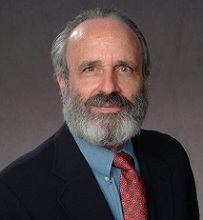 William A. Hyman
William A. Hyman
Professor Emeritus, Biomedical Engineering
Texas A&M University, w-hyman@tamu.edu
Read other articles by this author
Clinical Decision Support (CDS) software is a subject of ongoing interest. Such systems have the theoretical potential to improve patient care by advising treaters on a variety of issues from the relatively mundane (flu shots) to big data based diagnostic prowess, under the general assumption that treatment will benefit from such advice. CDS might also play another role in reporting relevant information to public health authorities. However, advice giving CDS’s also have some challenges including the fundamental question of how reliable the advice of such a system is across a broad patient population, perhaps with multiple diseases, and how well providers respond to alerts, especially when there are many of them. CDS also had a place in the recent Cures act with respect to what kinds of CDS should be subject to regulatory controls, and what kind should be exempt from such controls.
In this context, the CDC has issued a Request for Information (RFI) which provides a background for the request, and seeks comments on a list of potential CDC focus areas, a list of stakeholders, and eleven questions that CDC has formulated about such systems. The broadly given purpose of the RFI is to guide CDC on CDS development and implementation, and approaches for improving adherence to evidence-based clinical guidelines, recommendations, and best practices through the use of CDS. The latter hints at having already determined that CDS is a solution to adherence rather than seeking to determine if it is. A subtler statement is the circular reasoning that benefits would accrue from “effective CDS tools”, ie if the CDS were effective, then it would be effective. Similarly, the CDC says that “a holistic approach is needed to make CDS more effective”. I think I am in favor of holistic approaches, whatever that might mean. And speaking of meaning, in response to an anonymous question on the meaning of CDS itself, the CDC replied “CDC purposely did not define clinical decision support rigidly because we’d like to understand from the responses what kinds of things industry considers to be clinical decision support”. Not having a clear definition cannot, in my opinion, be a good start in acquiring useful information. And this challenges a long running discussion with my biologist son on the importance of definitions which sprang from my asking him, via our usually terse e-mails, “Are viruses alive?”. His response was “Do you want them to be?”.
Included in the potential CDC focus area list is development tools, testing and validation, maintenance, clinical workflows, legal considerations, and strategic planning among others. The stakeholder list is comprehensive including government agencies, developers, providers, EHR vendors, researchers, patients, and clinical guideline owners. The latter reminds us that such guidelines may not be in the public domain.
The eleven questions focus on public health issues rather than more typical CDS development. This begins with the rather basic question of what role CDC should play, offering potential roles as guidelines development, standards development, and convening stakeholders. How public health information can be used in CDS development and maintenance is also addressed. Somewhat off the CDS subject is several questions on how can clinical information, including from EHRs, be exchanged in order to enhance public health processes. A different sort of question is whether there can be such a thing as emergency CDS development for outbreak diseases as opposed to a presumably more deliberative process for ongoing and perhaps better known conditions.
CDS has the characteristic that a good CDS is good, a mediocre CDS is annoying, and a bad CDS is terrible. Within this spectrum, we are still trying to figure out how to devise CDSs that are both correct in their assessment and useful to healthcare providers and ultimately to patients. What the CDC learns from responses to this RFI, and what it does with what it learns, of course remains to be seen.
